
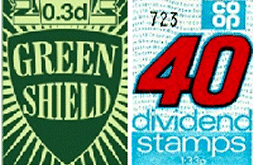

|
 |
|
The practice of issuing trading stamps was first
started in the 1890s by L. H. Parke, a Philadelphia and Pittsburgh manufacturer
and distributor of food products, under the name Parke's Blue Point Trading
Stamps for customers who purchased their products. It grew with the spread of
chain petrol stations in the early 1910s and the new 'supermarket' chains in
the 1920s and reached its peak popularity from the 1930s through to the 1960s.
U.S. brands included S&H Green Stamps, Top Value Stamps, Gold Bond Stamps, Plaid
Stamps, Blue Chip Stamps, Buccaneer Stamps, Gold Strike Stamps, Texas Gold Stamps
and Mahalo stamps in Hawaii. In the early 1960s, the S&H Green Stamp company
claimed to print more stamps annually than the US government. By the 1960s,
trading stamps had started to spread to other countries.
In the UK, entrepreneur Richard
Tompkins purchased the name Green Shield from a luggage manufacturer and
founded Green Shield Stamps in 1958, building a headquarters office block in
Station Road, Edgware, Middlesex, in the early 1960s.
By 1963 Green Shield stamps were given away by many small retail outlets and
petrol filling stations, but the business really grew when Tesco founder Jack
Cohen, who saw it as a significant retail traffic builder, signed up with them
in that year, shortly after competitors Fine Fare adopted S&H Pink Stamps (a
UK operation of S&H Green Stamps). By 1965, the British Co-operative movement
was also offering trading stamps as a means of allocating dividends to its members
and CWS launched the national Dividend Stamp scheme in 1969. Other trading stamp
schemes included Blue Chip and the short-lived King Korn operation, as well
as many, more localised, retail outlets who produced their own.
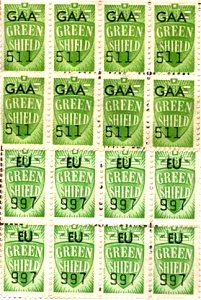 |
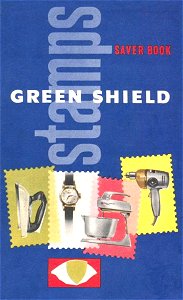 |
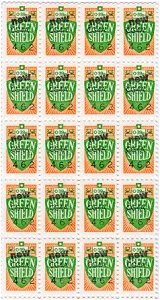 |
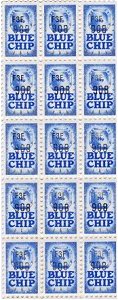 |
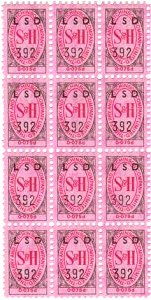 |
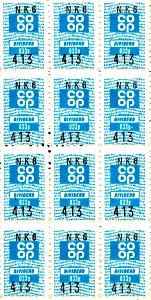 |
 |
|
|
All
Original Material Copyright SixtiesCity
Other individual owner copyrights may apply to Photographic Images |